“With over 3 million books being published every year, competition in the marketplace is enormously stiff. In fact, over 78% of all published books fail, and the average book, today, sells just 250 copies.”
Ouch! A sobering fact from book promotion guru Patricia Fry.
What’s an author to do?
You’ve got to be a book promotion machine.
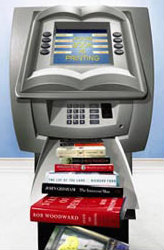
But you’re not a machine, are you? No, you’re an author.
So that’s why I invited Patricia here today. After reading her book TALK UP YOUR BOOK, I realized even though I’m doing a lot to promote my book, I could be doing more. I SHOULD be doing more.
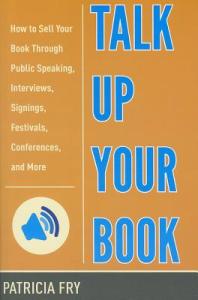 Patricia, that 78% statistic is scary. Can you tell us what you mean by “fail”, and is there a difference in these stats between traditionally published and self-published titles?
Patricia, that 78% statistic is scary. Can you tell us what you mean by “fail”, and is there a difference in these stats between traditionally published and self-published titles?
By “fail,” they mean the books sell fewer than 100 copies. There are no statistics that I know of that indicates how many self-published authors versus traditionally published authors “fail.” However, I can tell you that around 78 percent of all books published today are produced by pay-to-publish “self-publishing” companies.
Why are so many books failing in the marketplace? Because most new authors neglect to study the publishing industry before getting involved. They don’t know the importance of writing the right book for the right audience and they don’t understand that it is up to the author to promote the book. Many new authors who do take the initiative and time to learn something about book promotion, find themselves in over their heads once they are faced with the huge responsibilities involved with marketing their books. They don’t realize how much time, energy and effort it takes. They become overwhelmed and disillusioned and they either never start a marketing program or they quit before they’ve gone very far with it.
Competition is another reason why some books fail in the marketplace. There are more books than ever before and statistics show there are actually fewer readers. But even in the face of competition, there are some books that do much better than others and the key is always–write a book that is needed/wanted by a segment of people, know who your audience is and write for that audience, have your book edited by a good book editor and, when it comes time to promote that book, it is vital that you know how to promote to your particular audience. No one will buy a book they don’t know about. It is up to the author to reach his/her audience. Something else authors often lose sight of is that once they stop promoting their book, it will die.
OK, so about 22% of all books are with traditional houses. Traditional houses will promote your book (right?), but the author still needs to do as much as they can. What do you say to the authors who think they can just sit back and watch sales roll in? And what do you say to those authors who complain, “But I’m not a natural promoter. I’m an introverted writer!”
I don’t know much about the statistics. That isn’t my strength. But I can tell you that in today’s publishing climate, all authors MUST be prepared to and expect to do the majority of the promoting and marketing for their books. There are hundreds of traditional publishers and they each have different ways of working with authors, but most are more interested in the author’s platform and what the author can and will do to spread the word about their books than almost anything else. Most of them want to work with authors who have a following, a reach—a ready-made audience for promoting their particular book and an understanding of book promotion.
By way of promotion from the publisher’s side—generally, a publisher will put the book in their catalog and on their website. They might send out press releases to their list of reviewers, newspapers, etc. They may give an author 3 months with an on-staff publicist. But, yes, the author is expected to be the main marketing agent for his/her book.
What do I say to authors who do not want to promote? I would hope to talk to them before they ever write that book. I would ask them to study the publishing industry and to learn what is expected of them—what their responsibilities are as a published author. I would urge them to learn what book promotion entails—to gain an understanding of this huge responsibility before ever deciding to write a book for publication. If they don’t want to do the promotion, they should seriously reconsider producing a book.
For those who have already written and published a book, I would recommend that they engage in the same study asap. There are hundreds of ways to promote a book. An author can find his/her level of expertise and comfort among them. They can pick and choose—but they must be realistic about what it’s going to take in order to reach their particular audience.
This means, they must know who their audience is, write the book with that audience in mind, know where their readers are and how to approach them. They must understand that it’s all about exposure. No one will buy a book that they don’t know about. Someone (in this publishing climate it is the author) must get word out to their particular audience.
With so many avenues of promotion available now, it can be overwhelming. And so part of an author’s job is to become familiar with those avenues and determine which ones are best for their book. There is usually no one or two activities that will help an author reach his or her audience. Authors must use a variety of activities, skills, methods, mediums toward getting exposure—getting their books noticed by their readers. And those methods, skills, etc. may differ from author to author and book to book.
Is there any particular promotional tool or event that is easiest for a new author to jump into? Is there anything you recommend doing first and foremost?
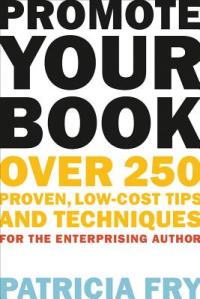 First and foremost, the author must know who his audience is and where they are—what do they read, where do they hang out—on the Internet, around town, throughout the universe? Where do they go for the sort of information you provide in your book or for entertaining reading material? Then the author must find ways to reach his or her readers through these means.
First and foremost, the author must know who his audience is and where they are—what do they read, where do they hang out—on the Internet, around town, throughout the universe? Where do they go for the sort of information you provide in your book or for entertaining reading material? Then the author must find ways to reach his or her readers through these means.
Remembering that it is all about exposure, as an author, you must make sure your book is front and center where your readers are. This might mean having it for sale at specific specialty shops related to the theme or topic of your book. It might mean announcing your book in appropriate newsletters (members of organizations can usually place announcements in organization newsletters, for example), having it reviewed at appropriate blog sites and so forth. So the primary promotional activities might differ from author to author, depending on the genre and theme of the book and the nature and needs of the audience.
However, as for the basics for most authors, I would recommend building a website related to the genre/theme of your book. I can’t tell you how many authors miss out on opportunities because they don’t have a website that can be easily located and accessed. They rely on their publisher—even their self-publishing company—to get word out about their book through the company website. Bad idea!! If someone is looking for a good mystery involving horses, a handbook for beginning surfers, a guide to gardening in the northwest or a children’s book on hygiene, for example, and this is the nature of your book, you want them to find you first. A website is a good place to start making this happen.
The second thing you need to do is to advertise that website. Put it in your email signature, on your promo material, in your bio at the bottom of your articles, and so forth.
A good place to start introducing just about any book is locally. I urge authors to speak locally, reserve booths at local flea markets and book festivals, offer it as an auction item for charity and visit independent bookstores and appropriate specialty stores and other venues where you can sell the book. You’ll get an idea of the reader interest in your book. You’ll learn tips and techniques that will help you with future promotion. You’ll learn whether or not it would be a good idea for you to travel and speak about your book and whether to sign up at larger book festivals, for example. In other words, you can test your market locally without much expense.
This is a good starting place for many authors. There are hundreds and hundreds of additional promotional tools and ideas–I have over 250 in my book, PROMOTE YOUR BOOK. John Kremer lists 1001 in one of his early books on book marketing.
Thank you, Patricia! I think we’ve got a lot to think about and a lot to do! I can’t thank you enough for your wisdom and your terrific books.
 Considered “a maven when it comes to counseling authors in the art of publishing and selling their books” and “one of the most well-known writing gurus,” Patricia Fry has been working with other freelance writers and authors for over two decades. Currently, she has 39 books to her credit, representing an eclectic mix of subjects including several writing/publishing-related books. She is a literary and manuscript consultant, an editor and a teacher. She can help you write a book with more publishing potential, professionally edit your book manuscript, guide you in preparing a more effective book proposal and coach you in more successfully promoting your book. You can find promotional tips and free ebooks at PatriciaFry.com.
Considered “a maven when it comes to counseling authors in the art of publishing and selling their books” and “one of the most well-known writing gurus,” Patricia Fry has been working with other freelance writers and authors for over two decades. Currently, she has 39 books to her credit, representing an eclectic mix of subjects including several writing/publishing-related books. She is a literary and manuscript consultant, an editor and a teacher. She can help you write a book with more publishing potential, professionally edit your book manuscript, guide you in preparing a more effective book proposal and coach you in more successfully promoting your book. You can find promotional tips and free ebooks at PatriciaFry.com.








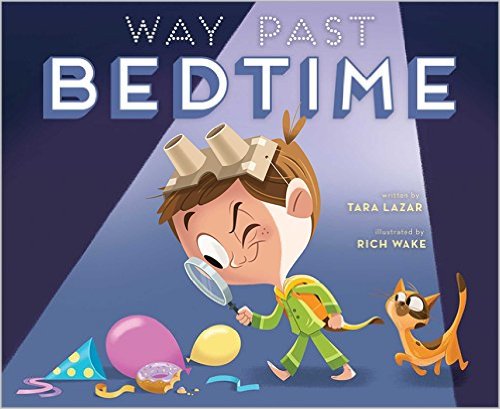




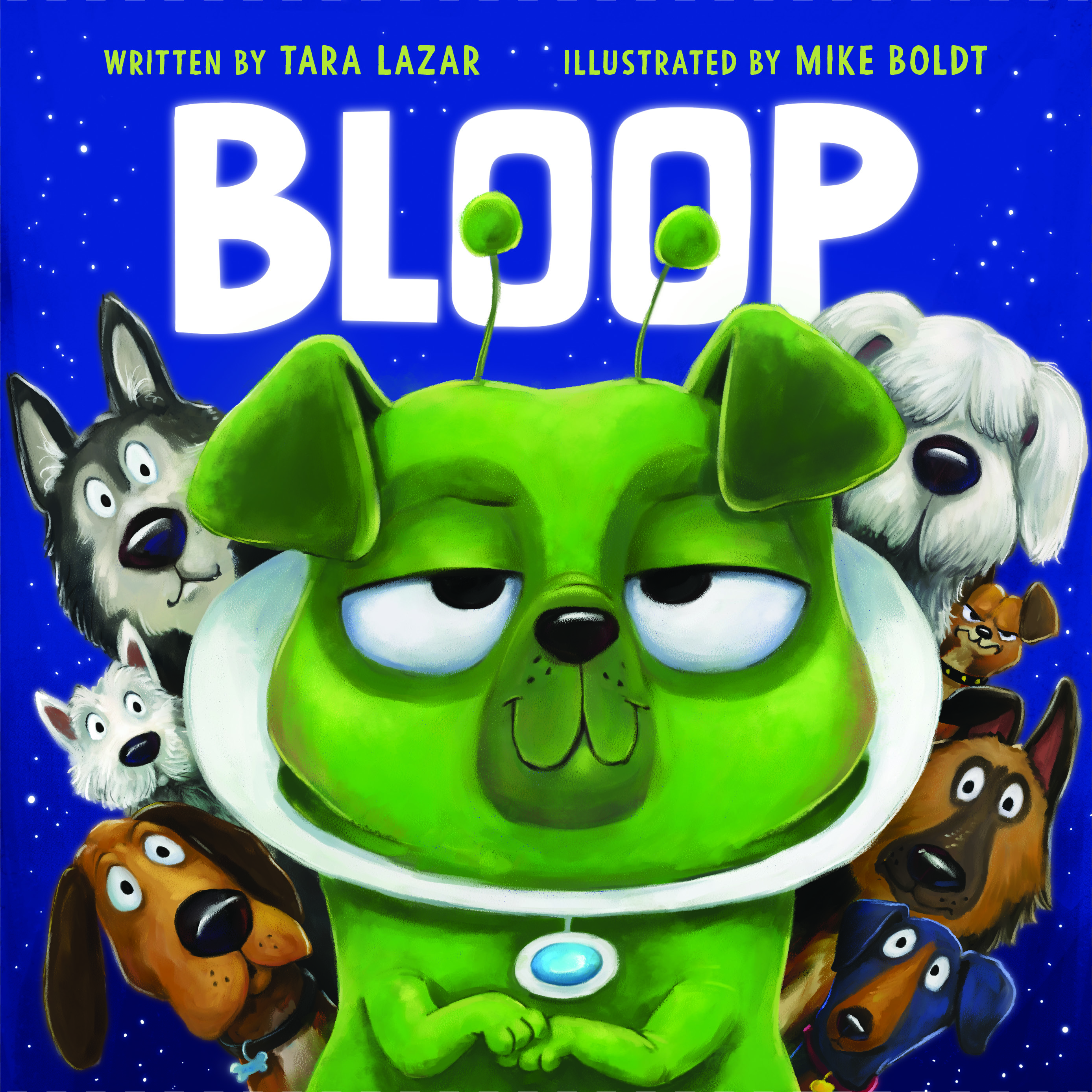
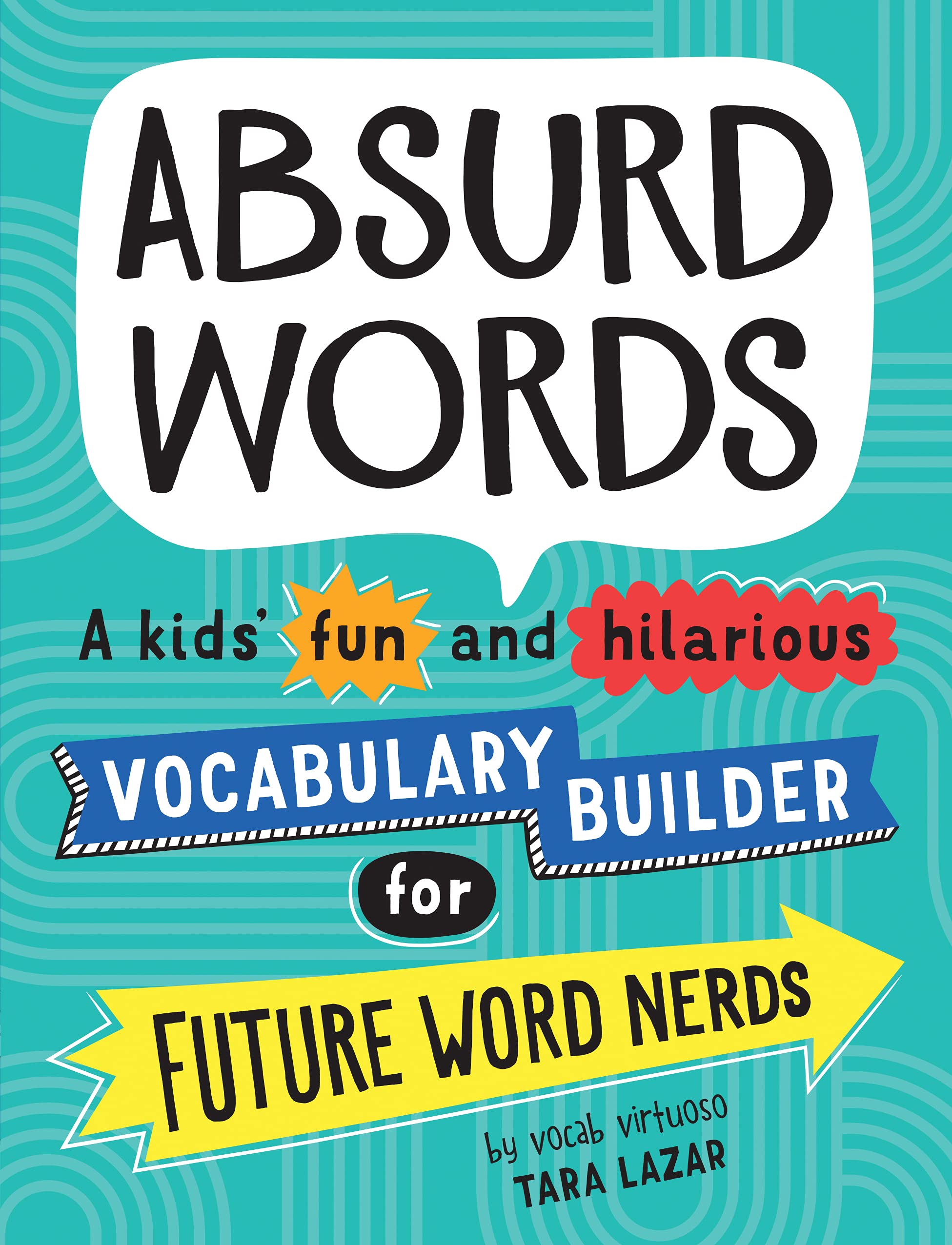

18 comments
Comments feed for this article
August 3, 2013 at 1:25 pm
Donna Mae Pasiczniak
promote,promote, promote. Network- keep lines of communication open.
August 3, 2013 at 1:34 pm
Laura Sassi
Great post. I’m going to order myself a copy of Patricia’s book.
August 3, 2013 at 2:55 pm
julie rowan zoch
Great advice, but I wonder if one should let the daunting prospect of marketing keep an artist from following a passion. I am glad that I discovered joy in creating picturebooks before I could see all that a career entails, and I hope that joy will help sustain the energy to promote that which I am passionate about. But I am grateful for tips like these to motivate and guide, should I be so fortunate. Thank you for the interview and pep talk, Tara and Patricia!
August 3, 2013 at 3:56 pm
Sabrina
A very informative article, thank you!
August 3, 2013 at 4:31 pm
Tina Cho
Great info! I’m going to bookmark this to use for the future. So Tara, out of the 250 tips and techniques from the book, have you been able to use most of them?
August 3, 2013 at 7:43 pm
Tara Lazar
Tina, I read “Talk Up Your Book” first and I am just getting into “Promote Your Book”. I’d be happy to review it once I’m done…it’s going to be my #1 beach read! LOL
August 3, 2013 at 4:54 pm
Jennifer Rumberger
Interesting and informative post. Thanks!
August 3, 2013 at 6:28 pm
Helen Ross
Thanks Tara and Patricia. Great tips! Book marketing can be very daunting especially when you realize what there is to do, and all the different avenues out there. Yes, I agree, it is so important to know our target market and where to find them. Book promotion can be very overwhelming but just taking it a step at a time helps. Plus trying to put some fun into it, where you can. Thanks again.
August 3, 2013 at 6:36 pm
pennymorrison
How daunting. I’m scared. I guess I’d better buy that book.
August 4, 2013 at 7:17 am
Carrie
Whether you are writing a book or starting a business, it is important to learn how to market your end product. We need to learn how to market our goods. Without it, all our efforts are wasted.
August 4, 2013 at 9:14 am
Heather Hatch
Please do not put up a quote like your opener without naming the source right away! If we need to know, we also need to know that, too. Otherwise, it feels like more net ‘promotion’ sensationalism.
Thanks for your interesting and educational ‘platform!’
August 4, 2013 at 11:17 am
Tara Lazar
Sorry, the quote is from Patricia Fry. I thought that would be obvious from the article title, the question I asked (“Can you tell us what you mean by ‘fail’?”) and the context of the article. I’ll make a clearer note so there’s no confusion.
August 5, 2013 at 1:59 am
writersideup
Tara, thanks for posting this! I’m slowly working my way into this part of the publishing world and it is definitely a lot of work which I have only skimmed the surface of, that’s for sure! I’ve read quite a bit about blogging, but as Patricia stated—there’s a LOT more! I’m going to check out Patricia’s AND John’s books, hoping it’ll help with the process. Thanks! 🙂
August 5, 2013 at 2:01 am
writersideup
Oh, and btw, I was aware of the fact that so few books are considered a success. In fact, I remember that the percentage of bestsellers is extremely small (like 1-5 % or something) and said to “carry the industry.” It IS very sobering!
August 5, 2013 at 2:14 pm
Stacy Couch
Thanks, Tara! I got tapped to help local authors promote a bookfest, and all these tips really help.
August 6, 2013 at 7:09 am
biblisketch
Great information. As a self-published author, these statistics are kind of hard to take in. Just off of publishing my first children’s book “Adventures of the Bunny Baron: Captain Barnacle’s Revenge,” I have been out doing my promoting. I set up a blog ( http://www.biblisketch.com) so people are able to discover who I am and what my story is about…Then hopefully buy my book! I see it as a tough journey ahead, but that never stopped Walt Disney, and it sure isn’t going to stop me. My next avenue will be local promotion at book stores and boutique stores. HAPPY PROMOTING!
August 6, 2013 at 11:09 pm
Linda
Thanks for posting this. I often have a hard time balancing promotion with writing. They are both important to me and they both take up so much time!
November 30, 2013 at 7:42 pm
Carol Mitchell
This is a magnificent article! It’s well researched, and, it answered quite a few questions about why my book Rovella Starr, has not reached optimum sales. I know all church women I have sold the book to loved Rovella Starr. I did make YouTube trailers for this book and after reading your article – I realized marketing takes greater involvement than what I have put out. In your article you were right to cite how we convince ourselves that we’re writers; not sales people. All in all -It’s only because of me that the book has not garnered wider attention and sales. Those who have read the book have lauded it’s readability and viability, as being a great romance story. I need to believe more in se lfto sell this book better, and this article went a long way in helping me to do that. Thanks for it!